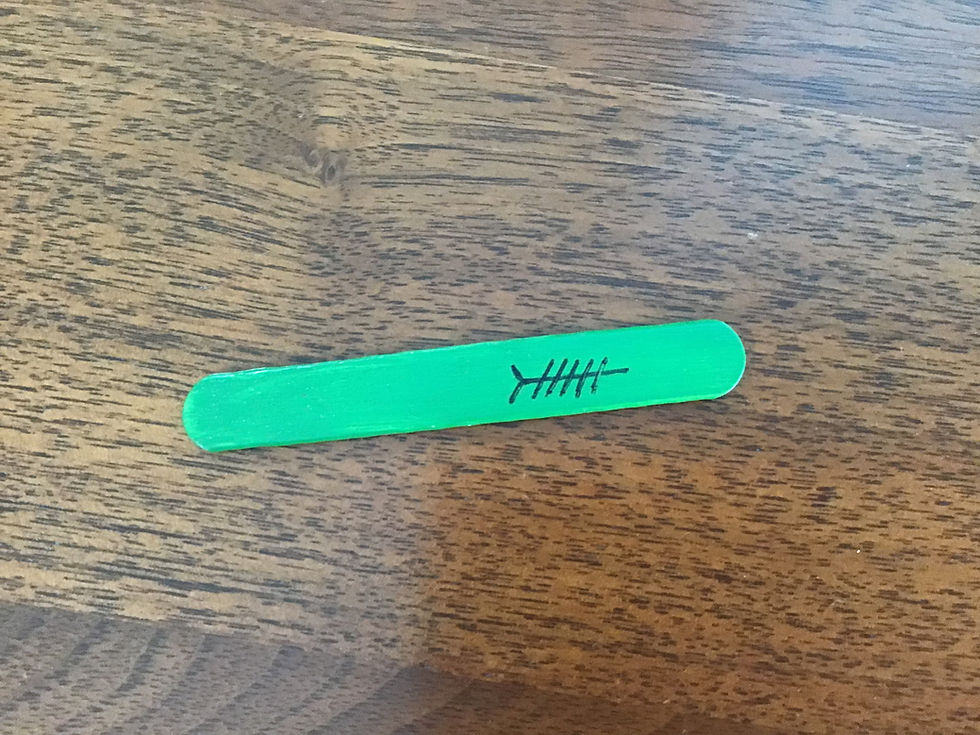Ogham Tuesday: Elder/Ruis
- Beth Buchanan
- Sep 2, 2025
- 3 min read
Regretting, Reckoning, Maturing

Aw, man. I HATE this ogham. It’s all about being embarrassed, humiliated, and shamed, and let me tell you how much this introvert doesn’t even want to be singled out publicly for positive things, much less for mistakes or mess-ups. Not even when publicly means me before my gods at the altar. Shame can be so wrapped up in toxic relationships, emotional and physical abuse, and victim-blaming, and anybody who is in recovery or healing from any of that struggles with toxic shame. Whenever Elder pops up for me, my teeth start grinding almost as a reflex, and I start reading the room for the source of the attack, ready to flee, fight, or fawn. Then I have to take a deep breath and step back out of my lizard brain to think—with my pre-frontal cerebral cortex this time.
So let’s take that deep breath and explore the letter and lore. Ruis is the 15th letter of the Ogham alphabet and represents the /r/ sound as it is pronounced in English. The word ruis refers to the color red. All of the Word Oghams refer to red faces, intense blushing, and, in the case of the Ogham of Con Culainn, the “glow of anger.” That anger piece is interesting, isn’t it? It’s not uncommon for a person who feels humiliated to lash out in anger. Anger is a secondary emotion that provides a bit of armor against fear or embarrassment. Of course, so often words spoken and actions taken in anger can lead to further embarrassment and regret.
Might “righteous anger” have it’s own interpretation of the ogham as an omen? It depends on the circumstances, I imagine. Nik has helpfully pointed out to me that sometimes Elder is a caution against the toxic shame I mentioned earlier. It can be a reminder that you’re prone to taking on shame that isn’t rightfully yours to bear. Maybe you’re reacting out of old, obsolete patterns that are reflexive for you, and you need stop and rethink your reaction to whatever situation is at hand. Elder can serve as your signal to put any shame or blame where it actually belongs. Maybe it isn’t you.
Maybe it is. We’re human, and we make mistakes and screw up. We hurt others. We behave badly. When we do, Elder can hold us accountable—it is to be hoped with love and gentleness. Owning up to a mistake, cleaning up a mess we made, apologizing—these are things that help us learn and grow. It’s hard, to be sure, but a necessary part of being a decent human being.
Elder is considered an unlucky wood to use in creating ritual or magical tools, but also unlucky to remove from your property if it grows there. Also something something fairies. We need to use (or not use) Elder wisely and in ways that don't cause harm. At the same time, it is a part of our natural environment, and we have to learn to live with it safely. Much like emotions such as shame and regret. We don't want those feelings becoming toxic, but they are an inevitable part of the human experience.
Whichever way it goes, Elder has us dealing with shame and regret—very natural, human feelings. And whether we are learning to take up its burden when we err or to put it down when it’s not ours to carry, we need to learn to deal with all those icky feelings in a healthy, fully integrated manner.







Comments